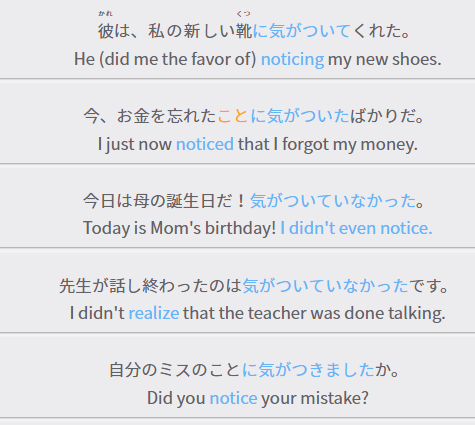Hi.
For the grammar point に気がつく https://www.bunpro.jp/grammar_points/167
I am confused about the conjugations.
Looking at the example sentences:

The past tense seems to conjugate as I would expect, into 気がついた (and also 気がつきました for the polite form) but the negative past tense doesn’t appear to be 気がつかなかった as I would have expected, but is 気がついていなかった. Why is this and can 気がつかなかった not be used?
Also, I assume there can never be a plain negative tense of this, as it doesn’t seem to make sense, but is a negative potential form like 気がつけない possible?
Cheers.
